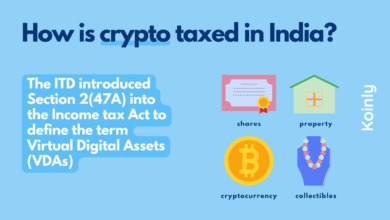COINS Act 2025: India’s Path to Crypto Regulation

As India stands at a pivotal moment in its cryptocurrency journey, the proposed COINS Act 2025 seeks to establish a comprehensive regulatory framework that prioritizes the rights of crypto users. Designed to facilitate secure self-custody of virtual digital assets, this legislation promises to give residents the constitutional-level protections necessary for active participation in the rapidly evolving crypto market. By addressing the need for a clear crypto rights framework, the COINS Act aims to eliminate regulatory uncertainty, enabling blockchain innovation in India to flourish. This act not only advocates for greater control over digital assets but also incentivizes a growing community of developers to build and innovate without fear of arbitrary restrictions. With the right policies in place, India could emerge as a leading hub for cryptocurrency, attracting talent and investment while safeguarding its citizens’ rights.
In the evolving landscape of digital currencies, the COINS Act 2025 represents a transformative step towards solidifying India’s stance in the global crypto arena. This upcoming legislation not only focuses on the legal rights for cryptocurrency holders but also fosters an environment conducive to blockchain advancements. With an emphasis on allowing users to manage their virtual assets independently, the Act champions a future where crypto self-custody is not just encouraged but protected under the law. Furthermore, by working towards a sustainable regulatory approach, the Act aims to ignite a wave of innovation within the cryptocurrency ecosystem, positioning India as a beacon for digital finance. Ultimately, the COINS Act stands as a bold initiative that could redefine the relationship between the Indian government, its citizens, and the burgeoning world of virtual assets.
The Significance of a Rights-First Framework in Crypto Regulation
The concept of a ‘rights-first’ framework emerges as pivotal in addressing India’s current regulatory challenges surrounding cryptocurrency. By instituting a system that grants constitutional-level rights to self-custody of digital assets, India can cultivate an ecosystem where individual empowerment is prioritized. This would allow cryptocurrency holders the ability to manage their virtual digital assets without excessive governmental constraints, fostering innovation and financial inclusion. Moreover, permitting self-custody means that users can engage in peer-to-peer transactions, enhancing the autonomy and freedom of the individuals involved in the crypto space.
Enhancing crypto rights in India signifies a dynamic approach towards regulatory clarity, steering the nation towards becoming a leader in blockchain innovation. Such a framework not only aids in alleviating the confusion prevalent among users and industry players, but it also positions India as a competitive jurisdiction for crypto investments and entrepreneurial ventures. By addressing the current regulatory impasse, a rights-first policy could prevent capital flight and bolster local startups, ultimately encouraging a robust cryptocurrency market that thrives on trust and legitimacy.
Navigating the Challenges of India’s Crypto Regulatory Landscape
India’s entanglement in regulatory limbo has stifled the growth of its cryptocurrency sector. As legal ambiguities persist, businesses and developers often face a fragmented landscape of advisories and unpredictable enforcement. This chaotic environment can deter investor confidence and push promising talent to greener pastures in more welcoming jurisdictions. To spur recovery in India’s crypto ambitions, the government must embrace measures that bring harmony to the existing laws, ensuring that innovators can operate within a clear regulatory framework without the fear of abrupt punitive measures.
Addressing the regulatory hurdles is paramount not just for consumer and developer security but also for facilitating the growth of blockchain innovation in India. By establishing guidelines that demarcate the rights and responsibilities of all stakeholders, the industry can cultivate an environment that attracts global projects. If the Indian government can successfully institute rules that are progressive and inclusive, it can affirm its stance as a formidable player in the global crypto economy, setting a precedent for other nations navigating similar challenges.
The Vital Role of the COINS Act 2025 in Indian Crypto Regulation
The COINS Act 2025 represents a significant milestone in the trajectory of India’s cryptocurrency regulatory framework. By addressing the pressing need for legal certainty and consumer protections, the Act seeks to forge a balanced ecosystem where innovation can flourish within a robust regulatory landscape. This model law, developed from extensive research, underscores the importance of defining property and privacy rights to empower users while ensuring that service providers operate under clear guidelines.
Moreover, the COINS Act’s commitment to guaranteeing rights such as self-custody and privacy protection is exemplary of a forward-thinking approach in global cryptocurrency regulation. By embodying a rights-grounded philosophy, the Act not only seeks to stabilize the currently fractured system but also aims to position India as an attractive hub for decentralized finance. The implications of this could expand beyond borders, inviting international collaboration as India champions a blueprint that others may seek to emulate, culminating in enhanced global participation.
Consumer Protection: Key Insights from the COINS Act
Consumer protection is central to the design of the COINS Act 2025, establishing a framework that prioritizes the rights of crypto users in India. With the right to hold and transfer digital assets without mandatory intermediaries, consumers can navigate the crypto landscape with greater confidence and security. This empowerment reflects a significant shift towards recognizing the autonomy of individuals, fostering a culture of trust where users feel safe engaging in cryptocurrency transactions. The provision for privacy further ensures that users’ financial activities remain safeguarded from undue surveillance, promoting a healthy ecosystem for digital commerce.
Additionally, the proactive measures outlined in the COINS Act are essential for curbing the mismanagement of assets that have plagued the sector in its earlier stages. With specific provisions for dispute resolution and mechanisms for accountability, the Act aims to deter fraudulent behavior while enhancing consumer rights. This paradigm shift towards consumer-centric regulation can potentially attract more users into the crypto markets, driving increased adoption and usage of virtual digital assets across the country.
The Future of Blockchain Technology in India: A COINS Act Perspective
The COINS Act 2025 is set to play a transformative role in catalyzing blockchain innovation in India. By creating a favorable regulatory environment that nurtures startups and developers, the Act encourages exploration and investment in blockchain technologies. This innovation ecosystem is crucial for positioning India as a global leader in the ever-evolving digital economy, allowing for solutions that can address local challenges while meeting global standards. The Act paves the way for a structured approach to using blockchain, enabling projects that can potentially revolutionize multiple sectors from finance to supply chain management.
Furthermore, the emphasis on collaboration between government and private sectors under the COINS Act will foster an environment conducive to experimentation and growth. As the country seeks to harness the capabilities of blockchain, it can utilize the flexibilities embedded within the Act to allow for pilot programs and sandbox environments. Such initiatives can provide invaluable insights, guiding the overall regulatory approach while ensuring that innovation does not come at the expense of consumer protection and accountability.
Addressing Taxation and Financial Constraints in the Crypto Space
One significant aspect of the COINS Act 2025 is its focus on addressing the punitive taxation and financial constraints that have historically hindered the crypto sector in India. By proposing a more understated approach to taxation, the Act aims to alleviate the pressure on startups and creators, enabling them to thrive without the fear of exorbitant tax burdens. This shift in policy could lead to a revitalization of India’s blockchain ecosystem, making it a more appealing environment for both domestic and foreign investment.
Moreover, the establishment of a strategic Bitcoin reserve as suggested in the COINS Act could provide a dual benefit: enhancing financial stability for the nation while promoting the understanding and integration of cryptocurrency into the mainstream economic framework. By carefully considering the implications of Bitcoin as a reserve asset and implementing responsible fiscal practices, India can create a model of economic resilience built on innovative currency alternatives that may reinforce confidence in the local economy.
Empowering Developers: Rights to Innovate and Create
The COINS Act 2025 also emphasizes the rights of developers, recognizing their critical role in the cryptocurrency ecosystem. By providing explicit rights to build, test, and deploy code on public networks, the Act fosters an environment ripe for innovation. This support for developers not only acknowledges their contributions but also cultivates a sense of community that encourages collaboration and knowledge-sharing among peers. As a result, the potential for groundbreaking advancements in technology and applications increases, positioning India at the forefront of the blockchain revolution.
Furthermore, empowering developers aligns with the overarching goal of fostering a diverse and competitive landscape across the crypto sector. When developers have the freedom to explore novel ideas and solutions, it opens the door to unique applications that can deliver varying benefits across industries. This encourages an influx of talent into the Indian tech hub, creates job opportunities, and ultimately enhances the nation’s economy, reinforcing the importance of the COINS Act as a catalyst for digital transformation.
The Path to Global Leadership: India’s Crypto Future
The prospects set out by the COINS Act 2025 position India not just as a participant in the global cryptocurrency dialogue but also as a potential leader. By championing a framework grounded in rights and innovation, the Act could attract global projects and investments that align with India’s vision for the future. As various industries increasingly turn toward blockchain technology to solve traditional problems, India’s readiness to embrace and regulate this transformation could place the nation a step ahead in the global race for crypto dominance.
Ultimately, the successful implementation of the COINS Act can serve as a blueprint for other nations struggling with similar regulatory challenges. India’s position as a leading authority in blockchain may also inspire further collaborations and partnerships with countries looking to develop their own crypto ecosystems. As the country carves its path forward, it can encourage shared innovation that spans borders, promoting a truly interconnected global economy wherein the benefits of decentralized finance are universally accessible.
Conclusion: A Progressive Outlook for India’s Crypto Industry
In conclusion, the COINS Act 2025 emerges as a crucial pivot point for India’s cryptocurrency landscape, promising to transform a narrative of uncertainty into one of clarity and empowerment. By promoting a rights-first philosophy, the Act has the potential to overhaul existing modalities, enabling consumers and developers alike to operate within a supportive regulatory framework. This progressive outlook not only addresses the immediate challenges faced by the sector but also sets the stage for sustainable long-term growth.
The future of India’s crypto industry appears bright, with the COINS Act laying down the fundamental principles for a robust ecosystem that embraces innovation while protecting consumers. As these advancements unfold, all stakeholders—regulatory bodies, developers, and users—must engage proactively to ensure that the aspirations of the Act are fully realized. This collaborative approach will ultimately guarantee that India emerges not only as a regional leader but as a pioneering force in the expanding realm of digital currencies and blockchain technology.
Frequently Asked Questions
What is the COINS Act 2025 and how does it impact India’s crypto regulation?
The COINS Act 2025 is a proposed legislative framework aimed at establishing a rights-first approach to cryptocurrency regulation in India. It seeks to provide residents with constitutional-level rights to self-custody their assets, enabling peer-to-peer transactions without overly burdensome KYC requirements. This act is designed to clarify India’s position in the global cryptocurrency landscape and encourage blockchain innovation.
How does the COINS Act 2025 support crypto self-custody rights for Indian residents?
The COINS Act 2025 guarantees users the right to hold, transfer, and self-custody their crypto-assets without mandatory intermediaries. This legislation emphasizes the importance of privacy in crypto transactions, ensuring lawful anonymous transfers remain protected, thereby enabling users to securely manage their virtual digital assets.
What are the potential benefits of the COINS Act 2025 for blockchain innovation in India?
The COINS Act 2025 aims to transform India into a global hub for decentralized finance by providing legal certainty, consumer protection, and promoting innovation. By creating a clear regulatory framework, it can attract talent and capital, enhancing the country’s reputation as a competitive player in blockchain technology and virtual digital assets.
Will the COINS Act 2025 help resolve India’s current crypto regulatory limbo?
Yes, the COINS Act 2025 is designed to address India’s ongoing regulatory challenges by establishing a comprehensive rights framework for virtual digital assets. By moving away from scattered advisories and unpredictability, this act can facilitate a more structured and clear approach to cryptocurrency regulation, reducing confusion and promoting growth in the sector.
What provisions does the COINS Act 2025 include for consumer protection in the crypto space?
The COINS Act 2025 includes several consumer protection measures, such as ensuring users’ rights to self-custody and privacy in their crypto transactions. It aims to safeguard consumers from punitive taxation and arbitrary regulations that have previously driven talent away, thereby fostering a safer environment for cryptocurrency adoption.
How is the COINS Act 2025 related to the discussion on virtual digital assets (VDAs) in India?
The COINS Act 2025 builds on the ongoing discussion regarding virtual digital assets (VDAs) by offering concrete legislative proposals aimed at refining India’s crypto regulations. The VDA discussion paper serves as a stepping stone, and the COINS Act proposes a comprehensive legal framework that outlines the rights and responsibilities of all stakeholders involved in cryptocurrency.
Will the COINS Act 2025 affect India’s approach to taxation on crypto transactions?
The COINS Act 2025 emphasizes a balanced and measured approach to taxation by promoting clarity in the regulatory framework. It seeks to address the punitive tax regime currently in place by proposing a more reasonable taxation structure that incentivizes growth and innovation in the crypto sector, rather than driving founders and investors overseas.
How does the COINS Act 2025 promote the establishment of a Bitcoin reserve in India?
The COINS Act 2025 proposes the creation of a strategic Bitcoin reserve aimed at reducing India’s dependence on traditional fiat currencies and bond holdings. It outlines a framework for acquiring Bitcoin through budget-neutral purchases and consolidating acquired assets wisely, ensuring market stability and diversification.
| Key Point | Description |
|---|---|
| Regulatory Limbo | India’s current crypto policy is unclear, reliant on pre-existing laws, creating confusion for stakeholders. |
| Rights-First Framework | A proposed framework to give residents constitutional rights for self-custody of assets and peer-to-peer transactions. |
| COINS Act 2025 | A model law aimed at providing legal certainty and consumer protection for crypto users in India. |
| Privacy Rights | The model law ensures the right to privacy in crypto transactions, protecting lawful anonymous transfers. |
| Innovation and Legal Certainty | The COINS Act seeks to foster innovation and solidify India’s position as a global hub for decentralized finance. |
| Strategic Bitcoin Reserve | The Act will propose building a Bitcoin reserve to reduce reliance on traditional fiat currency. |
| Market Stability | The COINS Act includes measures to maintain market stability while accumulating Bitcoin reserves. |
Summary
The COINS Act 2025 is a pivotal step toward resolving India’s current regulatory challenges in the cryptocurrency sector. By introducing a rights-first framework that guarantees users’ constitutional rights to self-custody of digital assets and facilitating peer-to-peer transactions, this legislative initiative aims to establish clarity and attract innovation to India’s crypto landscape. The proposal underscores the need for legal certainty, consumer protection, and strategic measures for a sustainable crypto economy, positioning India as a competitive player in the global cryptocurrency market.




